395. See You Yesterday (2019) — At the Movies
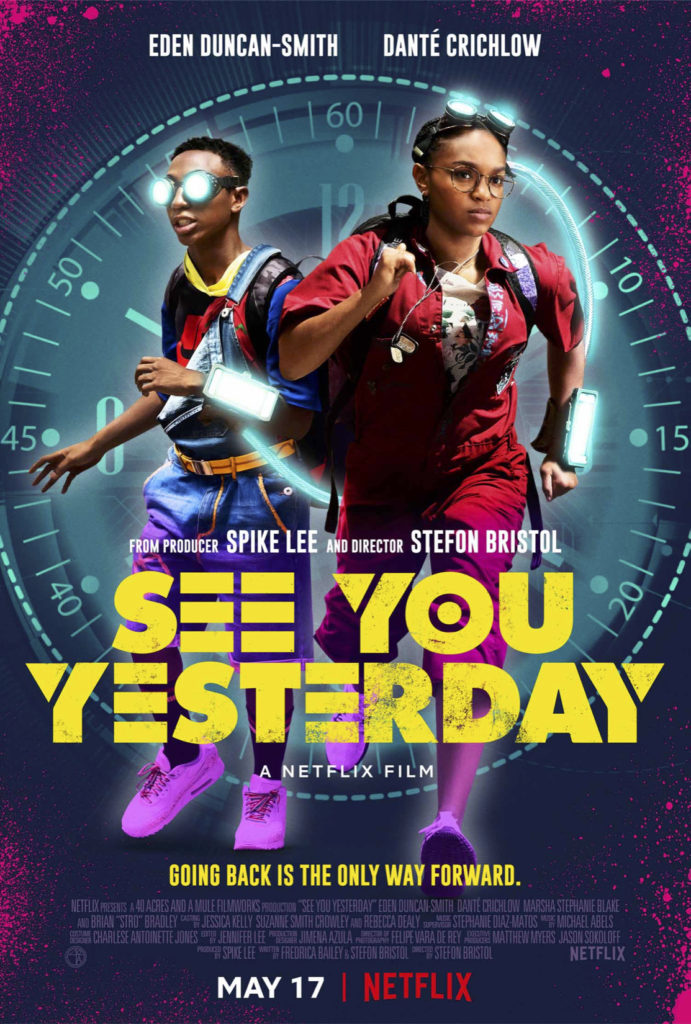
https://media.blubrry.com/skiffyandfanty/dts.podtrac.com/redirect.mp3/archive.org/download/sand-f-395-see-you-yesterday/SandF_395_SeeYouYesterday.mp3Podcast: Play in new window | DownloadSubscribe: Apple Podcasts | Spotify | Android | Email | TuneIn | Deezer | RSSTime travel, police brutality, and timey wimey ethics, oh my! Shaun Duke and Jen Zink join forces to discuss Stefon Bristol’s teen time travel adventure film, See You Yesterday. Togethery, they consider the timeliness of the film, how Bristol approaches black lives and contemporary politics concerning police brutality, the performances by the film’s young cast, and even the relationship of See You Yesterday to the time travel classic, Back to the Future. Plus much more! Thanks for listening. We hope you enjoy the episode!
Book Review: THE CURIOSITY KILLERS by K.W. Taylor
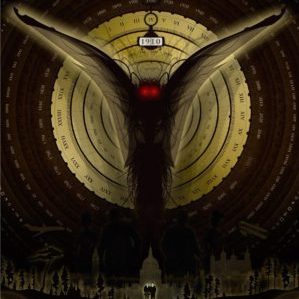
Years have passed since the second American Civil War split the nation in two, and physicist Edward Vere now devotes his time in the New British Empire to time travel technology, all while limited to the mostly Victorian-era technology that this portion of the former United States is permitted. During an experiment, a spacetime bridge opens between Vere and historic aviator Wilbur Wright, who is working with similar experiments in his own time. Perfecting the technology, Vere enters into a business partnership with historian Benoy Johnson. Together they start a time travel service for select individuals (references required), facilitating clients to go solve mysteries of the past as observers. However, there is a catch: upon returning, a client will be debriefed and then have their memory wiped to ensure that the technology or the ‘natural’ secrets of time do not spread to the public.
Book(s) Review: Alice Payne Arrives and Alice Payne Rides by Kate Heartfield
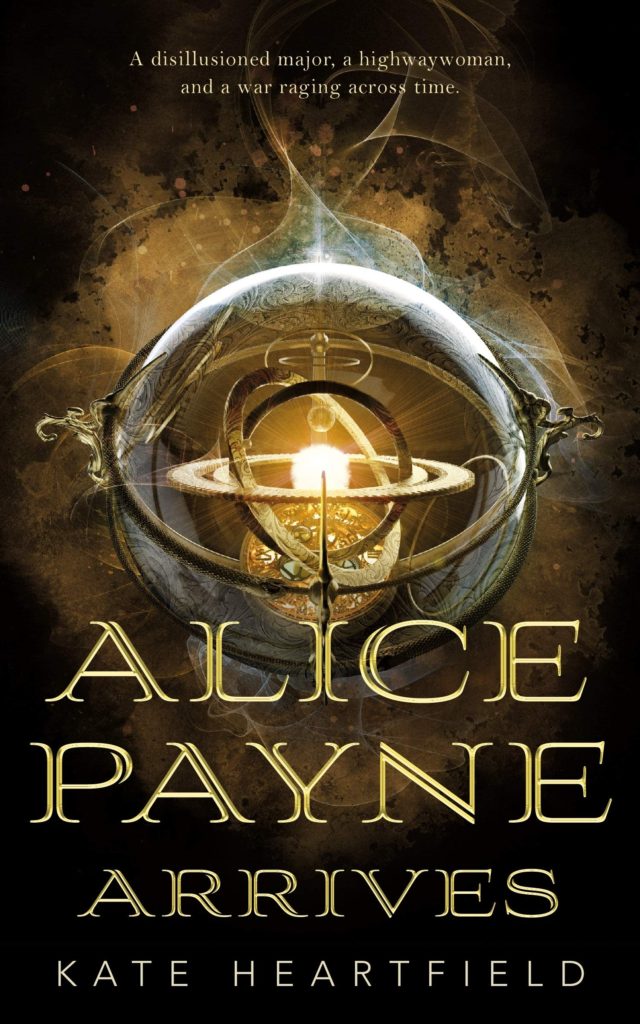
Alice Payne Arrives and Alice Payne Rides form a pair of time travel novellas that stand ably alongside the other fresh and new time travel science fiction being written today. The late 21st and early 22nd century are, frankly, a mess. Even after the invention of time travel, the Earth is in a bad way. There are plans to try and move people to the future, when the climate ravages have hopefully settled down, or to the past, before the worst effects are baked in. Trying to change the past to try and fix everything has boiled down to a conflict between two time traveling factions, the Farmers and the Guides. They have very divergent ideas what to do with time travel, enough that they are in a no-win conflict They have achieved a messy stalemate in their temporal cold war. In the meantime, though, a young woman in the late 18th century is using daring, stealth, and her lover’s clockwork automaton creation to gain the funds needed to keep her family’s estate afloat. Her name is Alice Payne, and she is soon swept into the temporal cold war.
Book Review: Gods, Monsters and the Lucky Peach by Kelly Robson
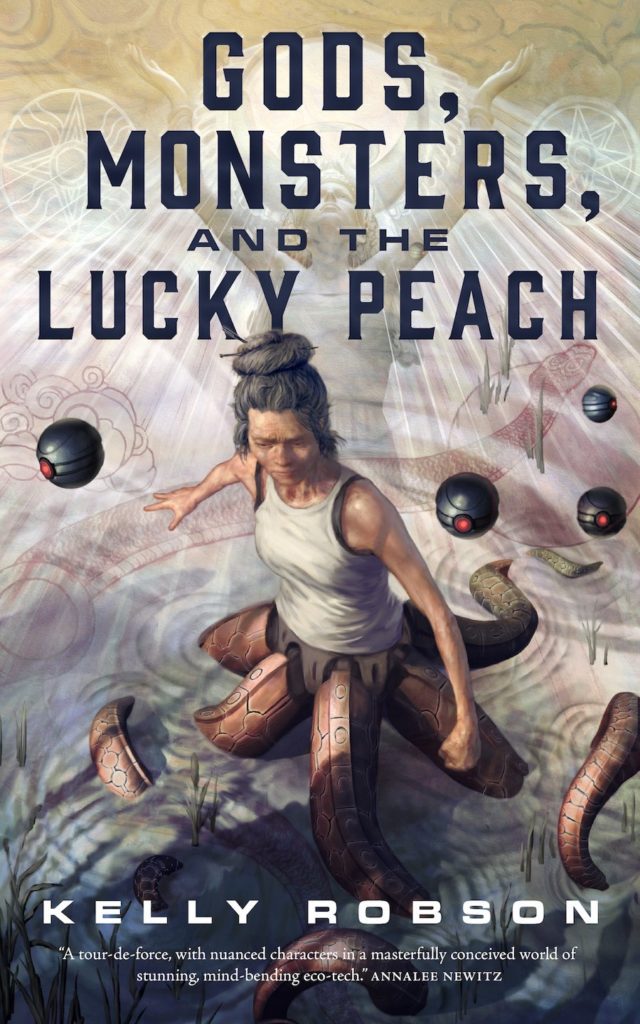
Gods, Monsters and the Lucky Peach is Kelly Robson’s successful leap from shorter fiction into novella format, combining new ideas on the uses of a time machine with a strong character-focused milieu and story. Time Travel is one of the seminal ideas in all of science fiction. Going all the way back to Mark Twain and H.G Wells, traveling outside of one’s own time frame is an idea that has been done and done innumerable times. There have been plenty of novels, stories and movies that explore the idea of time travel, to the past, to the future, to parallel timelines, to alternate worlds. It seems that any long-running science fiction series on television must have a time travel episode. And of course, the longest-running science fiction series in television history is…a show about time travel.
Book Review: The Trials of Solomon Parker by Eric Scott Fischl
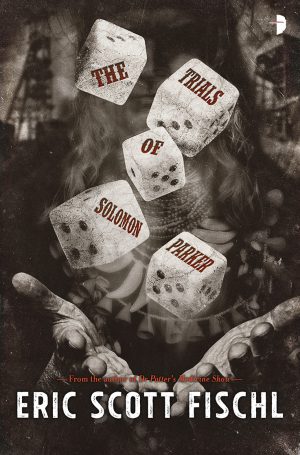
Eric Scott Fischl grabbed my attention in a big way recently with his harrowing debut novel Doctor Potter’s Medicine Show, and only tightened his grip on it with this follow-up. But once again, caveat lector. Just as its predecessor held considerable peril for sympathetic vomiters and those triggered by sexual violence, The Trials of Solomon Parker starts off with scenes of underground mine disaster so well-researched and vividly described that the claustrophobic or those living with PTSD might find it rough going. And then there’s that litany of other horrors, including domestic violence, that follows. Eek. Those who tough it out, though, have a reward in store for them that might even seem to carry a whiff of Kurt Vonnegut, or perhaps even Gene Wolfe, to it. For, like its predecessor, this is not merely a quality work of historical fiction. There’s Time Travel as well as copper in them thar hills!
Game Review: Timewatch, by Kevin Kulp
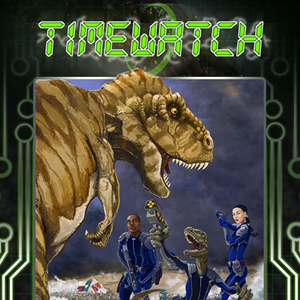
“History is not written by the victors, it’s written by the people with the time machines.” — Robin D. Laws Time Travel, as one of the earliest streams of science fiction literature, is similarly one of the earliest themes and modes in roleplaying games. From Timemaster to GURPS, to Continuum, and many others, characters acting as adventurers, patrollers, and explorers in the corridors of time and space have been a staple of science fiction roleplaying. Timewatch, written by Kevin Kulp and published by Pelgrane Press, is the latest iteration of time-travel roleplaying games. The default setting of the Timewatch RPG is the familiar line of a Time Patrol who monitors and keeps History on track. The Timewatch have a citadel in the out-of-time-and-space locale just before the singularity event that creates the Big Bang, and it is from that point that they monitor changes to the time stream due to outside agency, and then when one is detected, the agents are dispatched to discover why history has gone off track, and to correct it. Time’s track goes off because of, not usually pure chance as in the matter of Voyagers!, but rather because of other time travelers. Thus the players are pitted against would-be meddlers in history ranging from misguided do-gooders looking to kill Hitler to mutant time-traveling intelligent cockroaches seeking to create the nuclear apocalypse that will bring their species into existence. The opposition wants to change history permanently, and it’s up to the PCs to foil their plans and fix it.

